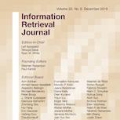A common practice in deep learning involves training large neural networks on massive datasets to achieve high accuracy across various domains and tasks. While this approach works well in many application areas, it often fails drastically when processing data from a new modality with a significant distribution shift from the data used to pre-train the model. This paper focuses on adapting a large object detection model trained on RGB images to new data extracted from IR images with a substantial modality shift. We propose Modality Translator (ModTr) as an alternative to the common approach of fine-tuning a large model to the new modality. ModTr adapts the IR input image with a small transformation network trained to directly minimize the detection loss. The original RGB model can then work on the translated inputs without any further changes or fine-tuning to its parameters. Experimental results on translating from IR to RGB images on two well-known datasets show that our simple approach provides detectors that perform comparably or better than standard fine-tuning, without forgetting the knowledge of the original model. This opens the door to a more flexible and efficient service-based detection pipeline, where a unique and unaltered server, such as an RGB detector, runs constantly while being queried by different modalities, such as IR with the corresponding translations model. Our code is available at: https://github.com/heitorrapela/ModTr.
翻译:暂无翻译





